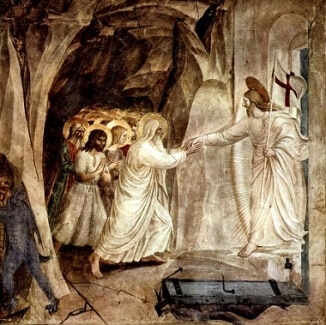 Throughout our lives, all of us have had world-shattering realizations. Most of these happen when we’re children: “Mommy and daddy are infallible!” or “why don’t mommy and daddy just get more of those pieces of paper to trade for those shiny things I want?” or “wait; there are other people who have wants and needs like my own?!”
Throughout our lives, all of us have had world-shattering realizations. Most of these happen when we’re children: “Mommy and daddy are infallible!” or “why don’t mommy and daddy just get more of those pieces of paper to trade for those shiny things I want?” or “wait; there are other people who have wants and needs like my own?!”
Many of these revelations come at the end of our lives. The notion of a deathbed realization is something of a cliché: “I wish I would have spent more time with my family” or “love is all that matters.”
The world, itself, has also experienced revelations that changed what everyone thought they knew: the confirmation that the world is round, the discovery of germs, the explosive relationship between energy and mass, the epiphany of chocolate.
But the coming of Christ is a perhaps unique case of both a personal and world-wide revelation intersecting. In the day-to-day affair of our lives, whether or not the world is round doesn’t really affect us directly. But the promise of the world to come? The revelation that the comforts of this world shouldn’t be a primary concern? It shakes what we think we know to its core.
Today’s readings are all about these revelations. Look at this quote from the First Letter of Peter: “All flesh is like grass, and all its glory like the flower of the field; the grass withers, and the flower wilts; but the word of the Lord remains forever.”
Think about what that says and what we intuitively believe. If you have a lawn, it probably looks pretty lush and green most of the year. Even if it’s covered in snow, you can dig up the snow and see that the grass is just hibernating. To our perception, much of the natural world is eternal.
But it’s not. It’s not, and it’s such a revelation that you may not have ever fully wrapped your mind around it. Think of the most-majestic tree you have ever seen. Lush, full of life. Yet someday it will die. It may be well past your lifetime, sure, but it’s not eternal. How many thousands of seemingly immortal trees have died in the two millennia since Christ was himself nailed to a tree?
The lush grass underfoot is constantly dying, each new generation born on the remains of its predecessors. It is no more a sign of immortality than our own children and grandchildren.
If you can realize that – really, truly understand what’s being offered, and what’s at risk – it’s enough to shake you to the core.
Similarly, today’s Gospel selection from Mark looks at another mind-blowing shift of perception from our Lord and Savior. “[W]hoever wishes to be great among you will be your servant; whoever wishes to be first among you will be the slave of all.”
Again, this is such a flip on the notion of what “power” is . . . what “greatness” is . . . what the relationship is between servants and masters. To truly live life in this way is to discard most of what the secular world preaches.
As I noted earlier, the deathbed realization is something of a cliché. The eminent prospect of death has a way of changing our outlook in dramatic ways. But – in some ways – these changes are trivial. What good does it do to realize you could have lived your life more fully, when you have hours left to live? Where is the benefit of realizing a higher purpose, when you’re in no position to be able to do something about it?
To hear the call of Christ, then, is to have that “deathbed realization” while you’re still alive, while you still can do something with that knowledge. It requires us to die to this world and rise in a new life with Christ. It requires an epiphany that bestows an abundance of world-shattering realizations, like shredding the misconceptions of our youth, like discarding the flawed ideas of an older world, like dying to ourselves and being born anew thanks to Christ.
If you’re not there yet, that’s okay. Many good, devout people have no doubt gone to their graves not fully understanding the import of what Jesus taught them. Countless martyrs with only the barest knowledge of the Church and her teachings have given their lives because the wisps of what they did comprehend proved so enticing that they willingly gave up their lives in pursuit of more understanding.
And if you’ve been there in that realization but fallen back, all is not lost. Children who see a misperceived falsehood fall away often slip as they regress to an earlier, simpler – or more selfish – belief.
But that ideal is, I think, one we should strive for. The sacrifice that Jesus gave for us and for the world is echoed in the sacrifice we’re asked of our own selfish selves and desires. The calling we feel to follow Christ in word and deed is one we should answer with an open heart and mind.
Death is the closing of the final door of this world, and hopefully the opening to eternal life with God. But before the hour of our death there is so much to do, so much to learn, and so much to teach. Don’t wait until it’s too late to fully give the gifts that the Maker has bestowed upon you. Listen. Awaken. Pray. Act.
Today’s readings: 1 Pt 1:18-25; Ps 147:12-13,14-15,19-20; Mk 10:32-45
